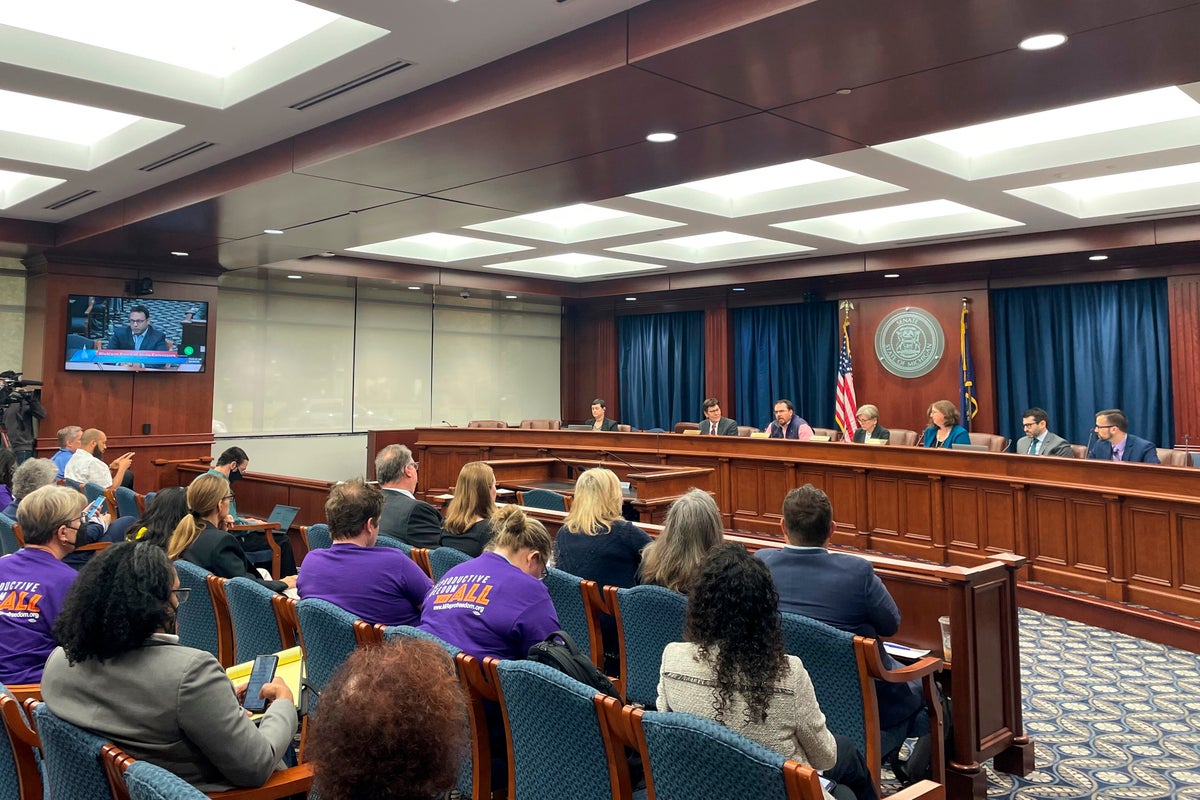
Since the U.S. Supreme Court overturned the nationwide right to abortion this summer, a dozen states have passed near-total bans and the issue has been thrust to the center of races around the country.
But the only direct test of how voters feel about abortion law after Roe v. Wade has been in Kansas, where voters soundly rejected a push to eliminate state constitutional protections for abortion. Now, with Tuesday's midterm election, five more states will get a gauge of voter sentiment about abortion, from deep-red Kentucky to purple Michigan and blue California.
The most closely watched vote is in Michigan, a state that's long been one of the country's most competitive presidential battlegrounds. Supporters of a push to protect abortion rights in the state's constitution collected more signatures than any other ballot initiative in state history to get it before voters.
If passed, the ballot measure would put a definitive end to a 1931 ban on abortion. A Michigan judge has blocked the ban, but another court could revive it after the overturning of Roe in June. If successful, the ballot would negate that ban and affirm the right to make pregnancy-related decisions about abortion and other reproductive services like birth control without interference.
Opponents have claimed the measure could have far-reaching effects on other Michigan laws, such as one requiring parental notification of an abortion for someone under age 18. But legal experts say changes to other laws would only happen if someone filed a lawsuit and won, a process that could take years and has no certainty of success.
Meanwhile, voters in Kentucky are considering a ballot measure that would do the opposite — amend the state constitution to say there is no right to abortion. State lawmakers have already passed a near-total ban; the ballot measure, if approved, would undercut legal arguments from abortion-rights supporters challenging abortion restrictions.
Lawmakers added the proposed amendment to the ballot last year, a move that some thought would drive more conservative voters to the polls. But since the Roe decision, abortion-rights supporters have raised nearly $1.5 million to fight it. They’re hoping to repeat the surprise outcome this summer in conservative Kansas, where voters overwhelmingly defeated a similar amendment that would have allowed the Republican-controlled Legislature to tighten restrictions or ban the procedure outright.
A defeat for the Kentucky ballot measure wouldn’t have a direct effect on the laws already passed by the Republican-controlled Legislature, including a near-total ban with a narrow exception for the woman's health that the state Supreme Court allowed to go into effect. A court hearing for a challenge to that law is set for Nov. 15.
Voters in solidly blue California and Vermont are also headed to the polls to vote on ballot measures that would enshrine abortion rights in their state constitutions.
In Vermont, the reproductive-rights question came after the 2019 passage by the state Legislature of a law guaranteeing abortion rights.
California has already passed several measures aimed at easing access to abortion and has set aside millions of taxpayer dollars to help pay for some out-of-state abortion travel. This Election Day, voters will also decide whether to approve language that would explicitly guarantee access to abortion and contraception in the state constitution. Supporters say it's needed after the U.S. Supreme Court found the Constitution's right to privacy doesn’t make abortion legal after all. Gov. Gavin Newsom made campaign ads to back the measure and former U.S. Secretary of State Hillary Clinton visited San Francisco to highlight it.
In Montana, meanwhile, voters are deciding whether to create criminal penalties for health care providers unless they do everything “medically appropriate and reasonable” to save the life of a baby after birth, including the rare possibility of birth after an attempted abortion.
Supporters say it would protect infants, but opponents argue the act could rob families of precious time with babies born with incurable medical issues if doctors are forced to try treating them. Penalties for violating the proposed law include up to $50,000 in fines and up to 20 years in prison.







